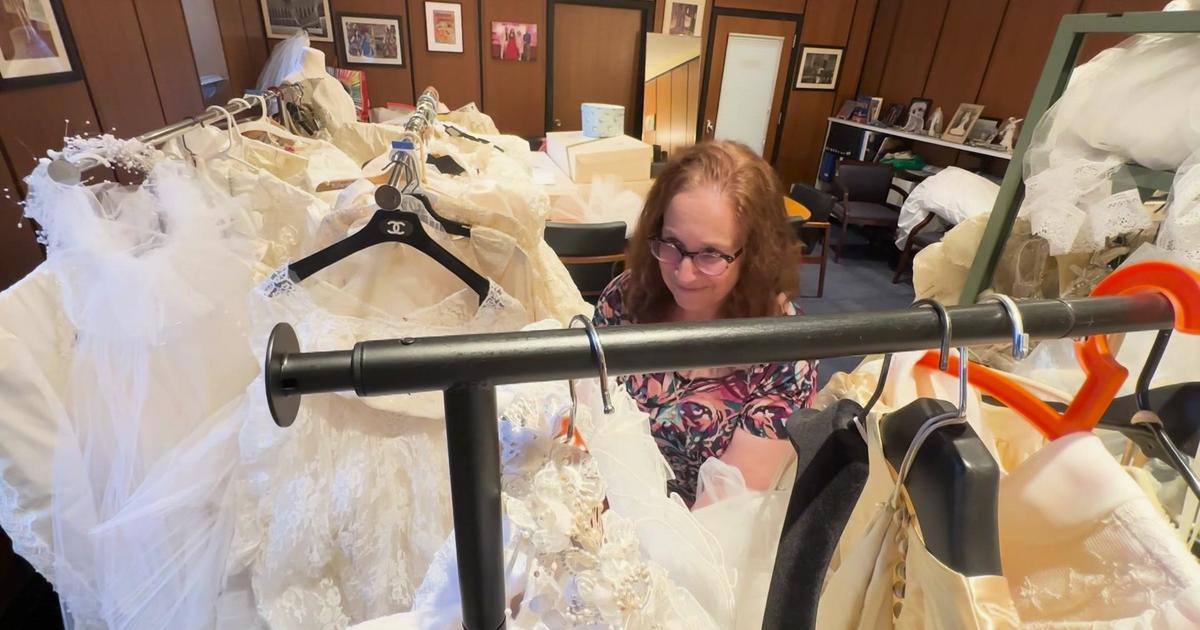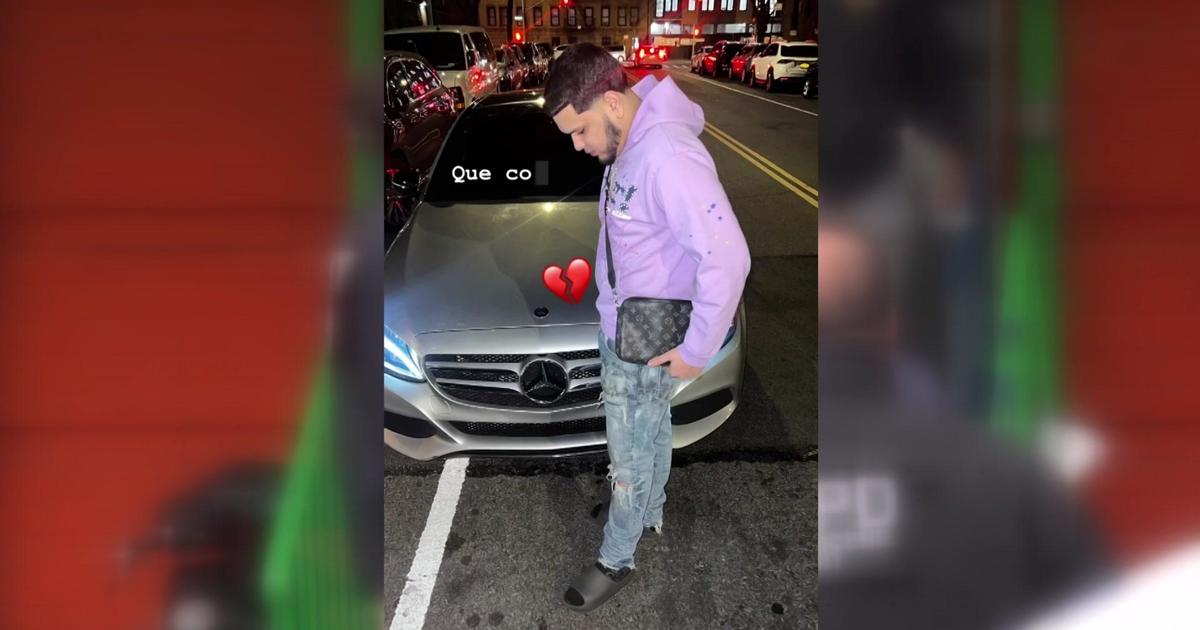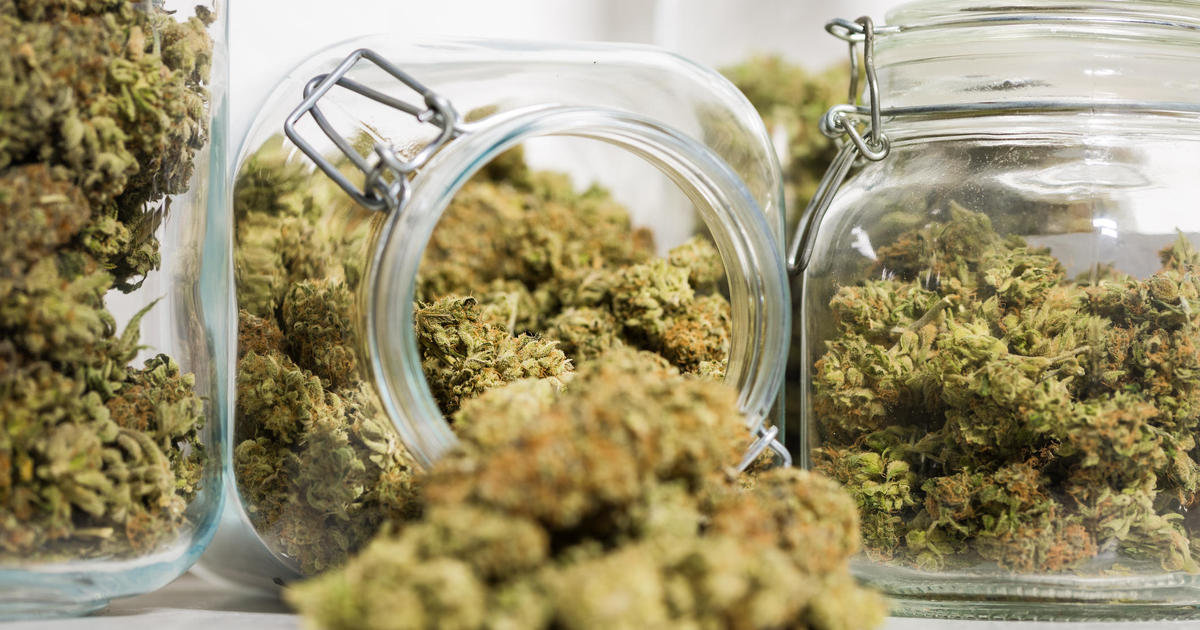How To Handle Packages? Why The Spike In Cases? Answering Your Frequent Coronavirus Questions
NEW YORK (CBSNewYork) - There are understandably many questions surrounding the coronavirus as information changes every day. Here are answers to some of the most frequently asked questions including the best way to handle package deliveries and why there's been a sudden spike in cases.
WHAT IS THE DIFFERENCE BETWEEN GETTING SCREENED FOR COVID-19 AND GETTING TESTED?
Screening is what is supposed to be happening at airports and ports of entry where a person is asked various questions such as if they have a fever, cough, difficulty breathing, what countries they have been to, and if they've been around anyone who's been sick.
"This kind of screening is really pretty perfunctory," said Dr. Max Gomez. "You could be infected and just not have developed the symptoms yet and remember, you can still get infected after you've been screened."
Testing is how doctors check for the actual virus through throat and nose swabs that are then sent to a lab.
"Remember, a negative test does not mean that you can't get infected later on," said Dr. Gomez. "In other words, we all have to keep taking precautions with social distancing and lots of handwashing regardless of the results of your screening or testing."
HOW LONG DOES THE VIRUS LIVE ON SURFACES?
The amount of time a virus can survive on a surface can vary a lot because it can depend on temperature, humidity, the amount of sunlight it's exposed to and the surface that it actually lands on.
A new study in the New England Journal of Medicine found that the virus lives longest on plastic and steel, up to three days. The shortest time was on copper and cardboard, only 4 to 8 hours, but the amount of actual viable virus declines rapidly during that period of time.
Dr. Max Gomez says it's important to remember that these times are in controlled laboratory conditions and they are likely much shorter under real-world conditions.
You would have to touch the contaminated surface right where the virus is and then almost immediately touch your nose, eyes, or mouth," said Dr. Gomez. "Not a very high probability that you actually do that and why the CDC says this isn't the main way that the virus spreads."
That means you're probably safe handling items like mail, packages, and food delivery, said Dr. Gomez.
As always, if you're still worried, wash your hands.
CAN PETS CARRY THE VIRUS?
"There's no evidence that cats or dogs carry the virus. Viruses keep to their own species," said Dr. Vanessa Raabe, an infectious disease specialist at NYU Langone Health.
WHY IS SOCIAL DISTANCING IMPORTANT?
Social distancing means maintaining a distance of 6 to 10 feet away from other people.
Dr. Max Gomez says if you keep this distance it means that if another person coughs or sneezes, the tiny droplets that are loaded with the virus will fall to the ground instead of on you.
You can still go outside while maintaining social distance.
"If you're outside, it's much easier to stay that far away from other people especially if you're taking a walk in the park, around the block or just exploring the neighborhood," said Dr. Gomez.
When it comes to children, Dr. Gomez said it's a good idea to keep them away from the playground altogether and not play with other children.
"As soon as you get home everyone washes their hands for 20 seconds with soap and water," said Gomez. "And remember, don't touch your face."
WHAT ELSE CAN I DO TO PROTECT MYSELF ALONG WITH SOCIAL DISTANCING?
One of the best ways to not get infected is to not touch your face.
"If you touch a contaminated surface and then touch your face, that's a great route for the virus to get into your nose, eyes and mouth," said Dr. Vanessa Raabe, an infectious disease specialist at NYU Langone Health.
Dr. Raabe acknowledges that not touching your face is really hard. Some studies say we touch our faces and average of 1,000-2,000 times a day. And you don't have to search very hard on the Internet to find people talking about how hard it is to avoid touching your face.
The CDC also recommends cleaning and disinfecting frequently touched surfaces daily such as tables, doorknobs, light switches, countertops, handles, desks, phones, keyboards, toilets, faucets, and sinks.
From more tips from the CDC on how to protect yourself, head to CDC.gov.
IS IT SAFE TO TAKE IBUPROFEN AND OTHER ANTI-INFLAMMATORY MEDICATIONS?
The bottom line is that the World Health Organization does not recommend against using Ibuprofen.
"While there is a theoretical way that Ibuprofen could make a coronavirus infection worse, most doctors that we spoke to and the World Health Organization say there is no published clinical data saying that Ibuprofen has any negative effects," said Dr. Max Gomez.
Ibuprofen And Anti-Inflammatory Medications
Dr. Gomez did point out that while acetaminophens and Tylenol work as a fever and pain reducer people should be aware that it can be toxic to the liver, especially for heavy drinkers.
WHY HAS THERE BEEN A SPIKE IN POSITIVE CASES IN THE AREA?
As more testing sites open, the number of known positive cases will increase.
The first drive-thru testing site in New Jersey opened Friday allowing health officials to test more than 600 people in one day. Gov. Phil Murphy said the combination of aggressive testing and some community spread is the reason for the spike.
"This is not and it will not be a surprise," said Murphy. "I urge residents to not let these numbers increase the anxiety they already feel."



